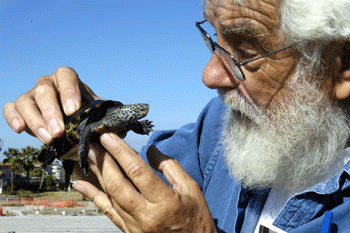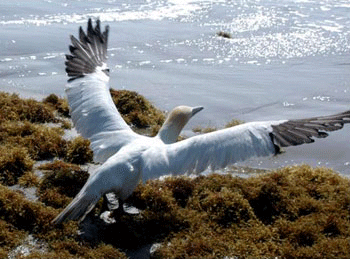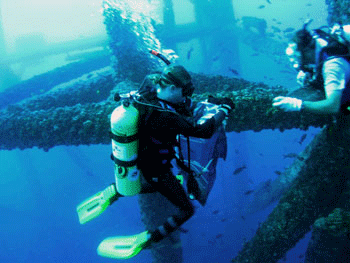What is Marine Biology?
 Marine biology is the study of marine organisms, their behaviors and interactions with the environment. Marine biologists study biological oceanography and the associated fields of chemical, physical, and geological oceanography to understand marine organisms.
Marine biology is the study of marine organisms, their behaviors and interactions with the environment. Marine biologists study biological oceanography and the associated fields of chemical, physical, and geological oceanography to understand marine organisms.- Marine biology is a very broad area, so most researchers select a particular area of interest and specialize in it. Specializations can be based on a particular species, group, behavior, technique, or ecosystem.
- Molecular biology is a related area of specialization in marine biology. Researchers apply molecular techniques to many environments ranging from coastal marshes to the deep sea and to various organisms such as viruses, plants, and fish.
Why is Marine Science Important?
 As growing global population stresses the ability of our society to produce food, water, and shelter, we will continue to look to the oceans to help sustain our basic needs.
As growing global population stresses the ability of our society to produce food, water, and shelter, we will continue to look to the oceans to help sustain our basic needs.- Advances in technology, combined with demand, will improve our ability to derive food, drinking water, energy sources, waste disposal, and transportation from the ocean.
- It will be up to this and future generations to build upon our existing knowledge of the ocean and its potential to help meet the needs of the world and its inhabitants.
Why Study Marine Biology at UT?
 The Marine Science Institute serves as an internationally recognized center for the study of marshes, bays, the Gulf of Mexico, and the world’s oceans.
The Marine Science Institute serves as an internationally recognized center for the study of marshes, bays, the Gulf of Mexico, and the world’s oceans.- The Institute is dedicated to innovative research, university education, and public outreach.
- Undergraduate courses offer students practical experience in both the laboratory and field.
- The unique location of the Institute provides students and researchers immediate access to a variety of marine habitats.
Careers in Marine Science - What can you do with your degree?
EMPLOYERS OF MARINE SCIENCE GRADUATES
- universities and colleges
- international organizations
- federal and state agencies
- private companies/consulting firms
- marine related industries
- nonprofit laboratories
- local governments
- self-employed
MARINE RELATED CAREERS
- researcher
- professor or teacher
- environmental consultant
- natural resource manager
- fisheries biologist
- environmental lobbyist
- naturalist
- marine illustrator
- aquarium employee
- biotechnology specialist
- aquaculturist
How do I get started?
Check out our Bachelor's degree program.








